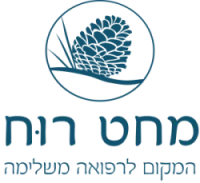What are polycystic ovaries?
Polycystic ovaries, also known as polycystic ovary syndrome (PCOS), is a hormonal disorder in women that affects the ovaries. In PCOS, the ovaries develop small collections of fluid called follicles, which can lead to irregular periods, difficulty getting pregnant, and increased levels of male hormones (androgens).
Although the exact cause of PCOS is not fully understood, it is believed to be related to hormone imbalances, including insulin, testosterone, and luteinizing hormone (LH). Women with PCOS may also experience symptoms such as acne, excessive hair growth and weight gain.
A case story
Dana, 25 years old, has suffered from polycystic ovary syndrome for several years. She was looking for a natural treatment and met Shay Davids, an acupuncturist. In her first acupuncture workshop, Dana felt a significant increase in her energy level and less muscle pain.
In addition to the physical therapy with acupuncture, Dana decided to change her diet to help treat the syndrome. She started eating foods rich in vitamin-B12, folic acid and amino acid, such as fish like salmon and tuna, dark chocolate bars and quinoa. She also decided to avoid smoked food and industrial products and to include more vegetables and fruits in her diet.
5 foods that help treat polycystic ovaries:
Salmon and tuna – contain folic acid and vitamin B12.
Quinoa – contains amino acid and folic acid.
Dark chocolate bars – contain vitamin B12 and folic acid.
Leafy green vegetables – contain folic acid.
Fruits with a high content of vitamin C – such as apples, melons and raspberries.
Five foods that are forbidden to eat in this syndrome
In polycystic ovary syndrome, it is important to avoid foods that can affect the level of insulin and glucose in the blood. Here are five foods you should avoid:
Smoked food – contains harmful substances
Spicy food – contains harmful substances and also contains food additives and chemicals that may affect blood sugar levels.
Salty – contains high levels of sodium and may cause bloating and increased abdominal pain.
Legumes- contain high levels of carbohydrates, which can increase blood sugar levels.
Food rich in sugar – It may not be surprising, but you should avoid any food that contains sugar, including sweets, prepared food and sugary drinks.
From this, it is important to eat a healthy and balanced diet for the treatment and prevention of polycystic ovary syndrome.
Acupuncture,
An important part of traditional Chinese medicine, it may provide benefits to women with polycystic ovary syndrome (PCOS) by improving menstrual regularity, reducing testosterone levels and increasing insulin sensitivity. Research suggests that acupuncture can be a beneficial and excellent adjunctive therapy in the treatment of PCOS.
Shai Davids, a Chinese medicine practitioner, practices in Jerusalem and Givatayim.
